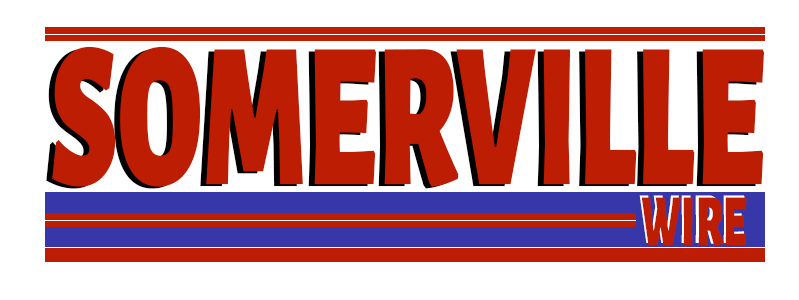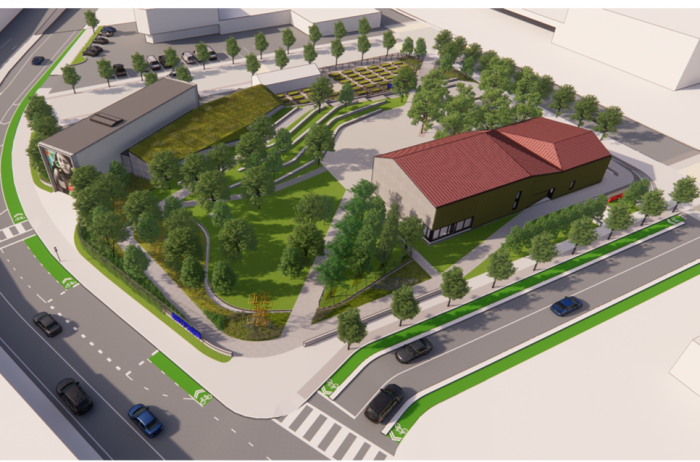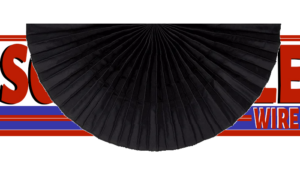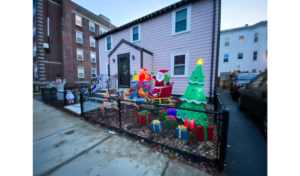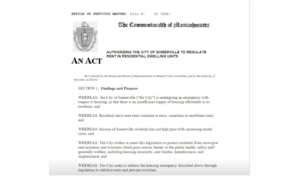With development having been set back, due to the coronavirus, the conversation is moving forward.
(Somerville Wire) – The creators behind Art Farm, a project that has been in discussion as early as 2015, will be unveiling initial designs for the Poplar Street Pump Station during a public meeting on April 14. Art Farm will be a “self sustaining art and urban agriculture laboratory” based in the Brickbottom neighborhood of Somerville. The pump will provide stormwater management infrastructure to the public space.
“A lot of the storm water and runoff will be coming down through that area of the Millers River and coming into a four million gallon, underwater tank, that’s going to be underground,” said Greg Jenkins, executive director of the Somerville Arts Council. He added, “The pump house is helping move that water along and filtering it. … Art Farm was built upon urban agriculture, open space, art, economic utility, and environmental work. The chance of being able to create this pump house and deal with a lot of climate change issues, as they relate to storm water runoff and old sewer systems where there was all this discharge going into the Charles River—this is a pretty large infrastructure project for the City.”
The Art Farm itself will be a public space that combines green practices with a destination for creative and agricultural work. The site currently houses a greenhouse leased by Green City Growers and planting beds. The space will feature a building to be used for performances and art exhibitions. In addition, Art Farm will include a park with seating, tables, and lighting. According to Rich Raiche, director of infrastructure and asset management for the City, the pump station, the design of which made significant progress during 2020, will help address problems like the legacy of flooding that has plagued the area for some time.
“We only just started getting into the design of the station itself within this past year,” said Raiche. “We’ve got a much better idea on what equipment is required to make that happen, in terms of the pumps and how you manage the things that get into storm water pipes that you don’t want in storm water pipes. So there’s a facility that will enclose and capture that debris and garbage. Part of what we wanted to do with the design that we’re going to be unveiling is we want to shelter that operational need from the Art Farm … If you’re in the Art Farm, you can see this building built into the landscape, but you wouldn’t necessarily know what’s happening in the back.”
The Art Farm’s storm water objectives include activating the City’s new drain connection, discharging stormwater to the Millers River, maximizing underground storage, managing pollutants, synergizing with the Art Farm, and emphasizing stormwater education. The concept behind the pump station design involves debris screening, an odor control system, enclosed truck operations, high voltage electrical and control systems, typical building systems, and integration with a structure called “The Shed.”
Raiche confirmed that the coronavirus has delayed progress on Art Farm to an extent. The pandemic put a temporary hold on the design of Art Farm and had the team go “pens down” in early April of 2020. This did allow them to catch up on the Poplar Street pump design, and they are currently trying to create “one unified design across the whole site, rather than two different designs with a line down the middle.” Construction was delayed as well, and according to Raiche, the overall development of Art Farm has been delayed by a year and a half, if not two.
“No one knew what was coming, both in terms of our ability to advance work and also what the City’s fiscal capacity was going to be. [We wondered], are we going to lose tax revenue, or are we having layoffs—that sort of thing,” said Raiche. “We did pause a number of projects. One of the projects we paused was the design of Art Farm, because we didn’t know what bidding and construction would look like. We didn’t want to move forward with it, and we didn’t know what the financial situation was going to be. … In one sense, it was fortuitous, because it allowed us to catch up with the Poplar Street Pump Station design.”
The Brickbottom community has been involved in discussions about Art Farm since the beginning. Community activist Peter Marquez said that many residents are discouraged by the amount of time that it has taken to get the project off the ground. People have developed a level of cynicism around its development, he said, believing that the City is not serious enough about Art Farm’s creation.
“The community is honestly a little frustrated,” said Marquez. “They see that Cambridge makes a decision to build a park in Kendall Square, and boom, it happens. Construction just breaks, and there it is. Whatever date they announce as their anticipated open date is not going to be soon enough. … But we’re very excited. Our number one priority is that we knew if we could make Art Farm real, if we could put a flag down for the community for the arts, for urban agriculture, in this space, if we could mark this and say ‘this is what’s happening here’ it would have an impact.”
Raiche said that he is sensitive to the disbelief that the public has been feeling about the slow progress the project has experienced.
“For a fair amount of time, the project wasn’t very well defined,” said Raiche. “The aspirational goal of activating it as a civic space, the idea of Art Farm has been in the public sphere for quite a while. But it really didn’t become a project that would be constructed until it was assigned a real project manager with experience in design and construction. That really only happened about two years ago. … I understand some of the frustration. It hasn’t been for lack of will or attention. It’s just more the actual complexity of getting things built in this state.”
All Somerville Wire articles may be republished by community news outlets free of charge with permission and by larger commercial news outlets for a fee. Republication requests and all other inquiries should be directed to somervillewire@binjonline.org.
Shira Laucharoen is assistant director of the Boston Institute for Nonprofit Journalism and assistant editor and staff reporter of the Somerville Wire.
